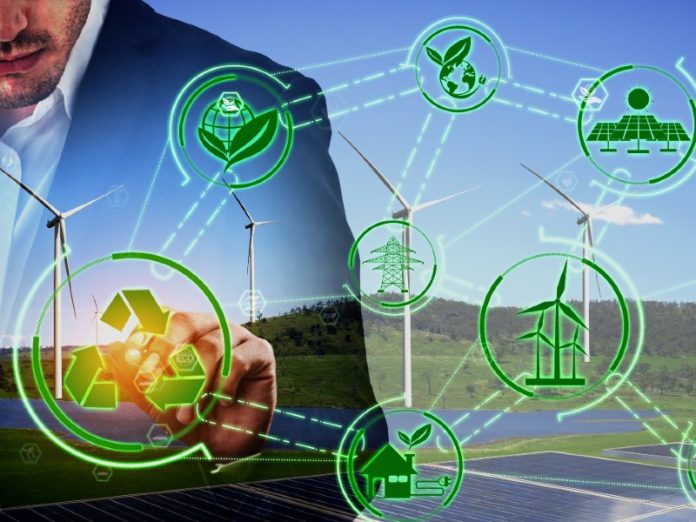
The AU-EU LEAP-RE programme has announced funding for 13 new research and innovation projects into renewable energy in cooperation between Africa and Europe.
In so doing, through the 13 projects listed below, LEAP-RE strengthens its support to develop renewable energy sources that address both climate change and the need for electrification, two of the biggest challenges facing Africa today.
Though the continent contains more than 16% of the world’s population as of 2017, Africa accounts for only 5% of the world’s global primary energy usage.
Between 70 and 80% of used energy is generated from traditional biomass in most AU countries, despite the continent’s abundant fossil and renewable energy sources. However, energy access remains the biggest problem, with an average electrification rate of 35% in sub-Saharan Africa.
LEAP-RE, which stands for Long-Term Joint European Union – African Union Research and Innovation Partnership on Renewable Energy programme, started in 2020 funding eight ongoing projects.
The tranche of 13 new projects will receive global funding of €10,35 million (€7,809m from funding agencies and €2,540m from the European Commission).
François Moisan, head of LEAP-RE’s Pillar 1, explained each project would receive a funding amount between €376,489 and €1 million, with the maximum funding to each project determined according to the terms of the call for proposals.
“During the selection process, applicants explained how much funds they would be needing in order to complete the projects and the amount they will receive is based on that.”
The Call Steering Committee, a pool of 30 independent experts from both continents evaluated and ranked the projects using the criteria of the European H2020 research and innovation programme.
The 13 renewable energy research projects to address a variety of needs
Renewable energy resources, mapping and modelling
OASES: Development and Demonstration of a Sustainable Open Access AU-EU Ecosystem for Energy System Modelling. Coordination: Fraunhofer Institute for Energy Economics and Energy System Technology, Germany.
End‐of‐life and second‐life management of RE components
RESTART: Recycling of spent Li-ion batteries and end-life photovoltaic panels: From the development of metal recovery processes to the implementation of a start-up. Coordination: University UCA of Morocco, Morocco.
SIREVIVAL: Si-based devices for renewable energy: From end-of-life recycling to revival of photovoltaic modules. Coordination: Université catholique de Louvain, Belgium.
Clean cooking and biomass transformation
SoCoNexGen: Solar Indoor Cooking Systems of the Next Generation. Coordination: Aachen University of Applied Sciences, Germany.
SOLAR INDUCE: Solar induced domestic clean efficient cooking and refrigeration for off-grid applications in Africa. Coordination: COPRECI S Coop, Spain.
PyroBioFuel: Sustainable biomass conversion into bioenergy through pyrolysis. Coordination: Cairo University, Egypt.
SunGari: A modern solar cooking solution for African staples. Coordination: University of Greenwich, UK.
New renewable energy resources for Africa
HyAfrica: Towards a next-generation renewable energy source – a natural hydrogen solution for power supply in Africa. Coordination: CONVERGE, Lda, Portugal.
New, more efficient PV cells and components
QDSOC: Environmentally friendly colloidal quantum dots for high-performance solar cells. Coordination: Université de Lorraine, France.
NANOSOLARCELL: Integration of photonic conversion layers based on photo-emissive nanostructured materials for improving sunlight harvesting ability of solar cells. Coordination: CNRS-CEMHTI, France.
Productive uses and new applications of solar energy
MG–FARM: Smart stand-alone micro-grids as a solution for agriculture farms electrification. Coordination: Université de Lorraine, France.
LEDSOL: Enabling clean and sustainable water through smart UV/LED disinfection and Solar energy utilisation. Coordination: Centrul IT pentru Stiinta si Tehnologie, Romania.
SolChargE: Decentralised Solar Charging System for Sustainable Mobility in rural Africa. Coordination: Technical University of Munich, Germany.
Projects are ongoing
The funding runs for 18 to 36 months, depending on the projects’ activities and needs. Beyond funding, the research projects are constantly monitored throughout their duration by LEAP-RE and have to submit regular reports and present their work as part of the overall programme.
“They will benefit from communication support and clustering activities with other projects that are active in the field of renewable energy,” said Moisan.
The eight projects already under LEAP-RE will last until 2025. The new partner organisations involved in each of the 13 new projects are already self-sustaining.
“Success [of the projects] will be measured based on the research results on the projects. If successful some projects might lead to the creation of start-ups, others will be the base for future research projects, building on their findings,” said Moisan.
LEAP-RE is a 5-year programme coordinated by French SME LGI and by the Department of Science and Innovation (DSI) of South Africa. LEAP-RE gathers more than 80 partners in Africa and Europe dedicated to research and innovation in the field of renewable energy. The programme has received funding from the European Union’s Horizon 2020 Research and Innovation Program under Grant Agreement n°963530.











